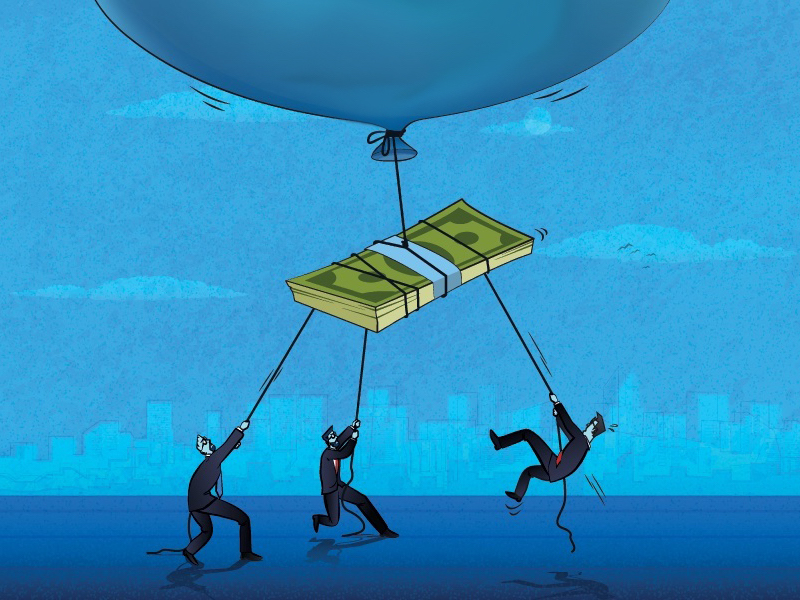
Diversification is key to hedging inflation
Marcus Bellander says Warren Buffett may have gotten it wrong when he wrote in the 1970s that inflation swindles the equity investor
- Featuring: Marcus Bellander
- December 5, 2023 December 5, 2023
- 13:01

(Runtime: 5:00. Read the audio transcript.)
**
Investors whose portfolios are well diversified have little to fear from inflation, says Marcus Belander of C WorldWide Asset Management.
The Denmark-based senior analyst said inflation may look like it can steal away portfolio returns — in fact, Warren Buffett said as much in a 1977 Fortune article called “How Inflation Swindles the Equity Investor.” But that’s not a big concern when the portfolio holds a wide range of stocks.
“If your stock portfolio reflects the broader economy, many of your companies may lose a little, but a few will gain a lot,” he said. “If you’re well diversified, you’re better hedged against inflation.”
Belander said there’s a reason people tend to focus on the impact of inflation on fixed income.
“We often talk about real interest rates, but we almost never talk about real returns on equities,” he pointed out. “And in one way we don’t have to because if we have a well-diversified equities portfolio and we have a long-term mindset, then we are basically hedged against inflation.”
He said stock pickers with concentrated portfolios should focus on companies that can quickly pass on higher input costs. And investors who believe central bank actions could cause a downturn should consider investing in non-cyclicals and companies that are less sensitive to economic swings.
“You could say that I’m splitting hairs here, but the point I’m trying to make is that it’s not inflation in itself that harms the economy, but rather the things we do to bring inflation back down,” he said.
Comparing current conditions to those of the 1970s has become a cottage industry, he said. But economic performance has actually played out quite differently. And contrary to Buffett’s theory, equities have performed well.
He said from 1966 to 1975, U.S. inflation averaged 5.4% per year. During that same period, stocks returned 3.9% per year on average, and bonds returned 3.7%. While the current inflation proved to be similar in severity, averaging 5.5% since 2021, stocks are up 8.5% per year since 2021, and bonds are down almost 9% per year on average.
“Not only have stocks outpaced inflation, they’ve also outperformed bonds by far in this recent bout of inflation,” he said. “Profits can increase even if return on equity is unchanged. Ultimately, I think shareholders are probably most interested in the growth of a company’s profits and a little less interested in what returns they’re making.”
He said the irony of inflation is that it’s caused by parties that are then affected by it.
“If no provider of services or goods ever raises their prices, then there is no inflation,” he said. “Inflation is not something that befalls companies. It is something they create.”
In inflationary times, price increases tend to be small and incremental, often at the same pace as other market players’ price increases. Revenues are similarly synchronized, rising at a steady pace.
“That’s what it’s like when inflation is predictable,” he said. “If everyone knows the rules of the game, it’s a zero-sum game, basically. Most companies can deal with that.”
The problem is when company prices rise out of step with each other, often started by an inflationary shock. Then a vicious cycle begins that quickly causes economic pain.
“That’s what happened during the 1970s when oil prices shot up, and it’s what happened in recent years when supply chains were really tight and transportation costs skyrocketed,” he said. “Those kinds of shocks…can certainly lead to temporary profit declines for some companies. But almost all companies will catch up eventually. It’s still a zero-sum game. It just takes time to play out.”
**
This article is part of the Soundbites program, sponsored by Canada Life. The article was written without sponsor input.
